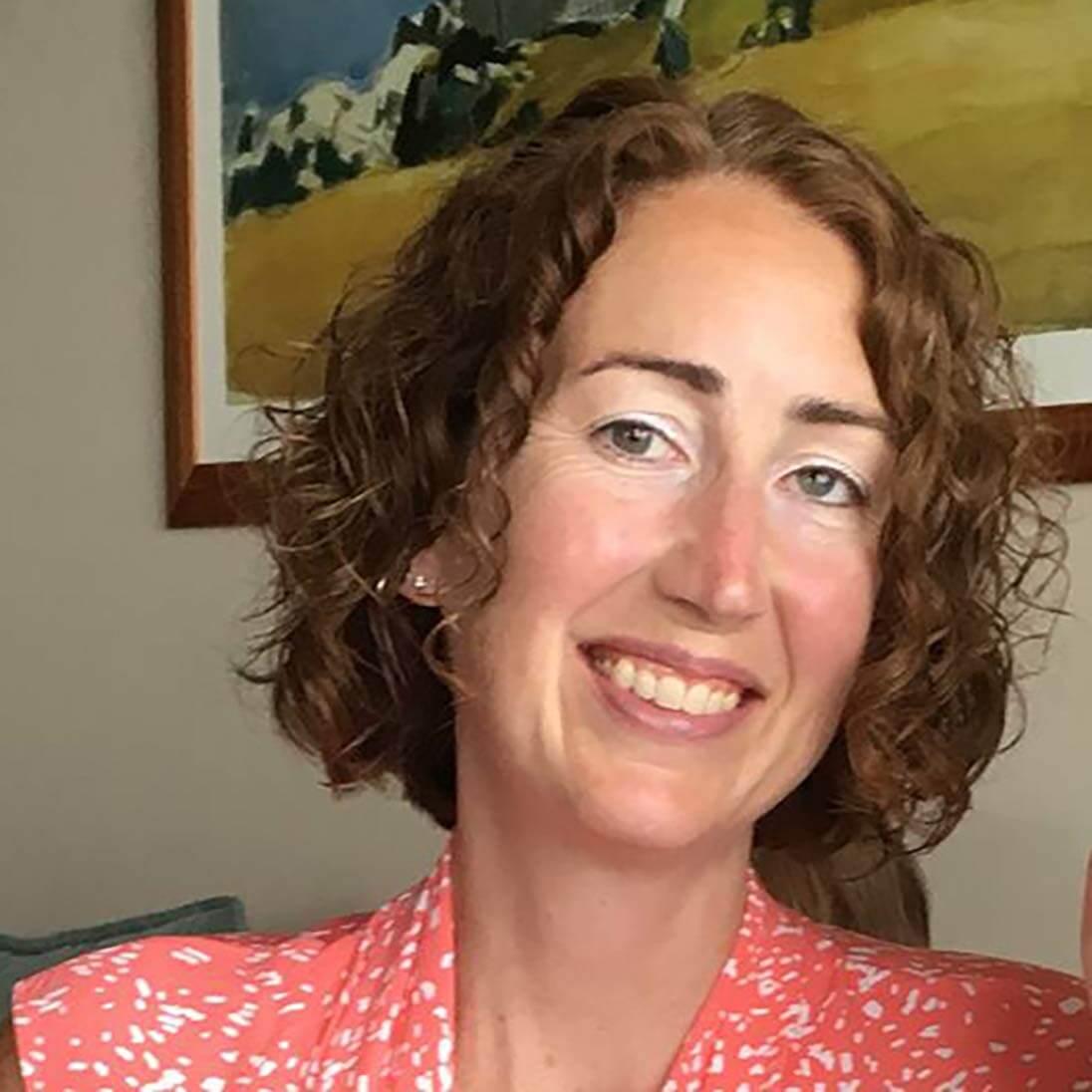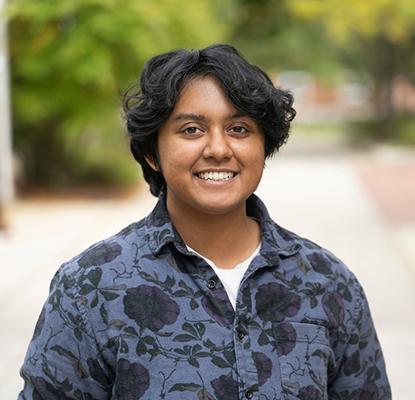Life Sciences
Exploring the entirety of the natural world, from tiny microbes to complex ecosystems
Introduction
We live on a vast planet, alongside billions of other living organisms—both visible to the naked eye and not. Life Sciences introduces students to the interdisciplinary nature of the life sciences and explores how we might best apply the knowledge we gain to better our community, our nation and the world we share with our fellow inhabitants.
Discussing a range of topics, including molecular biology, human genetics, ecology, evolution, conservation and ethics, students in this Scholars program seek to answer big questions:
- How do we use our knowledge and skills to improve various aspects of human health?
- How do we create a sustainable future for all life forms?
- How do the life sciences interact with our daily lives (religion, politics, relationships, business, the arts)?
Ultimately, students discover how they might build toward careers to help their fellow human beings and other life on this planet.
This program offers a close community of students who share a common passion for life sciences, broadly defined, and an enduring concern for the well-being of others.
Colloquium and Lecture Topics
- The story of the human body: Evolution, health and disease
- Future city: Urban nature as healing gardens
- Professional development: Finding an internship
- Movie: The Serengeti Rules
- Cathedrals of Science: The human scientists behind science
- Individual journeys defining success for Life Sciences Scholars
The program actively encourages involvement in opportunities to explore the extensive breadth of professions related to the sciences. The relationships and experiences [of Life Sciences] go beyond the typical expectations associated with large, competitive education institutions.
Other Learning Opportunities
Life Sciences Scholars students connect what they have learned in class with practical experiences outside the classroom. Students:
- Learn from working scientists through lectures, such as at the Carnegie Institute for Science;
- Take local and regional field trips to places—such as the U.S. Botanic Gardens and western Maryland—that underscore the connection of the life sciences to the real world; and
- Work individually or in small groups to research and prepare presentations on selected topics each semester.
They build upon that experience in their second year in the program to participate in research or an internship. Life Sciences students have:
- Participated in cancer research at the National Institutes of Health;
- Shadowed a dentist in the Dominican Republic as well as in his local practice; and
- Interned in the Green Office Program in the university's Office of Sustainability.
Finally, we offer students the opportunity to participate in global learning experiences specially tailored for their interests. Past trips have visited biodiversity-rich locations such as Alaska, Australia and Belize.
Curriculum Overview
Over the two-year program experience (four semesters), students will complete 2–3 Life Sciences–related science courses (including 2 specific lab courses) that will count toward their Life Sciences Scholars citation. In most cases, these will also fulfill General Education requirements. Note that your Scholars courses—colloquium, practicum and supporting course(s)—will generally be in addition to any courses you take to satisfy major requirements.
The following table represents a typical two-year curriculum, but individual schedules may vary. Details about courses and requirements can be found on the Life Sciences Citation Checklist.
| SEMESTER | COURSES | CREDITS |
|---|---|---|
| Freshman Fall | Scholars Colloquium | 1 credit |
| Ecology and Evolution + Lab (exceptions may apply for those in non–Life Sciences majors) | 4 credits | |
| General Chemistry + Lab (exceptions may apply for those in non–Life Sciences majors) | 4 credits | |
| Introduction to the University | 1 credit | |
| 1–2 courses toward degree and major requirements | 3–7 credits | |
| Freshman Spring | Scholars Colloquium | 1 credit |
| Molecular and Cellular Biology + Lab (exceptions may apply for those in non–Life Sciences majors) | 4 credits | |
| Academic Writing | 3 credits | |
| 2–3 courses toward degree and major requirements | 6–9 credits | |
| Sophomore Fall | Scholars Colloquium | 1 credit |
| 4–5 courses toward degree and major requirements | 12–16 credits | |
| Sophomore Spring | Scholars Practicum | 2–3 credits |
| 3–4 courses toward degree and major requirements | 9–12 credits |
Sponsoring College
Residence Hall
Centreville Hall
Office Address
1212 Centreville Hall
Office Phone
Faculty


Social Media Etc.
Life Sciences News
2025 Citation Class Honored at Awards Ceremony
College Park Scholars celebrated the best and the brightest of its most recent Citation class at its annual Citation and Awards ceremony recently. The 2025 Citation class, already packed with leaders in their academic fields of study and on campus, emerged undaunted by the challenges as one of the last high school classes during the pandemic, as productive community members in Scholars and at the University of Maryland.
Do Good, Win Big
An organization, represented by a College Park Scholars alum, working to ensure surplus food doesn’t go to waste took one of the $10,000 top prizes at the University of Maryland’s 13th annual Do Good Challenge last week.Four other finalists, including another Scholars alum, shared in another $20,000 in prize money awarded at the pitch competition, which drew more than 500 students, staff, faculty, and community members to the Samuel Riggs IV Alumni Center to hear teams’ ideas about how to make the world a better place.
Pair of Scholars Advance to Do Good Challenge Finals
Anticipation continues to build as 2025 Do Good Challenge finalists prepare to take to the stage in the annual pitch competition for a share of more than $40,000 in prizes. On Tuesday, April 22, the finalists will share more about their work and impact with an audience of hundreds and a panel of expert judges. The teams were selected from groups and organizations across campus that are tackling issues ranging from providing health education to reducing health disparities around the world to educating low-income youth on how to become entrepreneurs. This is the 13th annual Do Good Challenge hosted by the Do Good Institute, based in the School of Public Policy.
Five College Park Scholars Earn Philip Merrill Presidential Distinction
Eighteen outstanding graduating seniors at the University of Maryland are committed to a variety of causes and career goals, ranging from statistics and public policy to teaching.
Scholars Honor Citation and Founders Circle Award Winners at Annual Ceremony
College Park Scholars, celebrating the 30th anniversary of the program's founding, honored the best and the brightest of its most recent Citation class at its most recent Citation and Awards ceremony. This tenacious class, filled with future changemakers and leaders, pushed through a challenging start to college that began during the pandemic to emerge as standouts in the classroom, in their communities, and at the University of Maryland.
Bad Bosses, Big Dreams and Broken Philanthropy
For some young people working in nonprofits, their organizations and leaders seem out of touch. Top officials, they believe, are too consumed by their legacy and the hunt for grants. They feel radical change is needed now — in how philanthropy dispenses money, how organizations fight crises, and how staff is managed — but they don’t yet have the power or resources to make it happen. They have big ideas, but they’re still being treated like kids.Life Sciences alum Anthony Sartoni details his work in the mental health space and the partnership between nonprofits and philanthropy in this roundtable discussion.
